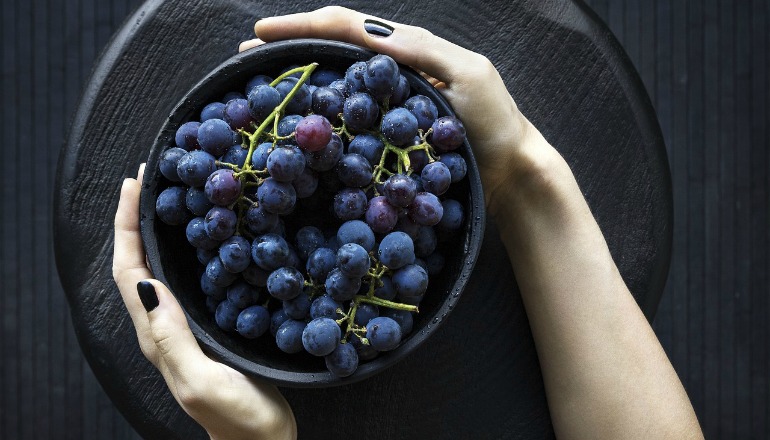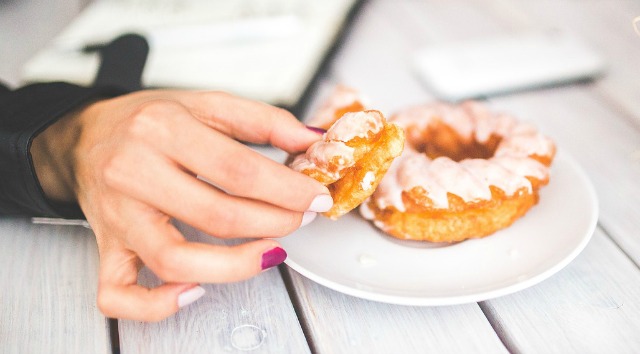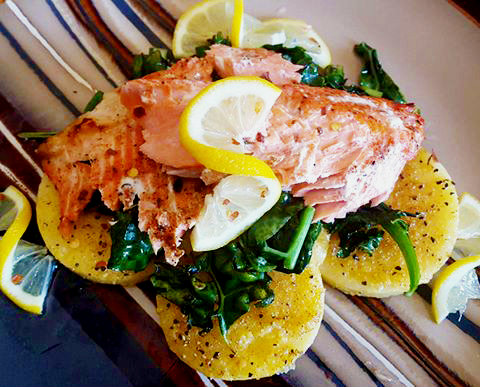
Even if we keep fairly active and eat reasonably healthy, most of us at some stage want to lose a bit of weight. And we may end up willing to try almost anything to drop those stubborn pounds. This is why the weight-loss industry is one of the biggest industries in the world. Unfortunately, there is much misinformation out there that makes weight-loss confusing for some and daunting for others.
I hope my articles on weight loss and nutrition can shed some light, as I have spent my entire lifetime shaping my body for competition sports — needing to look a certain way for gymnastics and Ms Figure and needing to be a specific weight for Brazilian jiu jitsu. This has given me an understanding of how food affects the body and what to eat in order to look or perform a certain way.

In this article, I’m going to talk about how different foods affect us chemically because of our body’s hormonal reactions, and what this tells us about the type of foods we should be eating for successful weight loss.
What to Eat for Weight Loss
The key in eating for weight loss is to eat foods that create a hormonally favorable environment for your body to utilize the calories, rather than store these calories for energy. Eating half a pound of broccoli will have a profoundly different effect on your body than eating half a pound of fettuccine carbonara.

Most of us know the foods we consume are comprised of the three macro-ingredients: fats, proteins, and carbohydrates. For a long time, there was this idea that eating fat was bad, so everyone ate a lot of cereals and breads. But fats are essential to our survival. They are necessary for insulating and cushioning our joints, involved in the synthesis of our hormones, and play an important role in the absorption of vitamins such as A, D, E, and K. The essential fatty acids in fats also have a part in brain development and the management of inflammation.
More recently, as more of our population has become obese and become prime candidates for diabetes due to the overconsumption of breads and cereals, carb-free diets have emerged. All of the sudden, carbs are the enemy. But we need carbs, too! We use them for energy and our brain needs glucose to function.
To achieve weight loss and function optimally, we need to eat a balance of all three of macro-ingredients. The type of each of these macro-ingredients is what will to make the difference between gaining and losing weight. So, let’s take a closer look at the hormonal effects different types of food have on our bodies.

The Basics of Our Body’s Hormonal Response
At all times, your body likes to be in a state of equilibrium, a state of balance. When we eat certain foods, our body releases specific hormones to maintain that balance. Our digestion has separate tools to digest each of the three macro-ingredients. Carbohydrates generally digest more quickly, while fats take the longest to get broken down. Carbohydrates are broken down into glucose, proteins are broken down into amino acids, and fats are broken down into fatty acids.
The hormones glucagon and insulin are responsible for regulating our blood glucose levels and maintaining a healthy equilibrium. Glucagon is released by the pancreas if glucose levels in our blood are low. Our glucose levels could be low because we have not eaten in a while or because we just did an intense workout. This is one reason people consume those glucose-rich energy drinks immediately after exercise, to restore and replenish their levels.
Conversely, insulin is released if there is too much glucose in our blood. This can happen if we eat a carbohydrate-rich meal, such as a bowl of pasta. When we ingest carbohydrates, our pancreas receives a signal to release insulin, which removes the excess glucose in the bloodstream and stores the excess as glycogen in the liver. Once our liver stores are full, then the remaining excess sugar is stored as fat.
Both hormones, insulin and glucagon, are vital for balancing our blood sugar levels. However, with our modern diets so jam packed with carb-rich foods that are so easily converted to glucose, we are more than likely in a continuous state of our hormones signalling our bodies to store, store, store.

But it is not just the amount of carbohydrates you consume that matters. It is also the type of carbs that affect how much insulin – the storing hormone – is released. Carbohydrates that are broken down rapidly cause a spike in blood sugar that triggers your body to respond with a surge of insulin. This programs your body to be in super storing mode, even if you haven’t eaten that much. In this way, simple sugars and processed carbs such as white bread, pasta, pretzels, and crackers are all a literal recipe for weight gain. These white starchy foods cause the pancreas to release insulin and tell your body to store.
But none of this makes carbs “bad.” Yes, carbs spike our insulin, no matter what – but we can curb that spike to some degree if we eat protein and fat along with the carbs and are mindful to eat quality (not processed) carbohydrate sources. One of the tools we can use to guide us in our carb selection is the glycemic index.
How to Combine Foods for a Favorable Hormonal Response
The glycemic index catalogues carbohydrates by the rate at which they are broken down by the body and released into the bloodstream as glucose. Pure glucose scores highest on the index with a value of 100. A high value (anything above sixty) means that type of carbohydrate is broken down extremely quickly and will cause a surge in insulin. A low value (such as ten) means the carbohydrate in question is broken down slowly and has a low insulin response.
But the impact of carbs on the body can also be altered with the addition of proteins and fats. Fats, especially, slow down the rate of digestion and absorption since they are much more complex to break down. So, our best strategy is to eat a balanced diet by consuming healthy carbs, proteins, and fats together at every meal.

One of my favorites: salmon, spinach, and polenta.
By eating healthy carbohydrates such as fruits, veggies, and unprocessed grains like quinoa as opposed to processed carbs and sugars, you will dramatically decrease insulin output, and this will decrease your body’s message to store fat. By eating a small portion of lean protein like eggs, beef, turkey, or chicken and good fats like avocados, nuts, and seeds along with those quality carbs, you will be eating foods in a combination that further decreases the amount of insulin released and, therefore, allows your body to better utilize everything you are eating for energy, replenishment, and repair.
Optimize Your Food to Optimize Your Hormones
For optimal health, good energy, and to eat in a way that is hormonally favorable for weight loss, we need all three macro-ingredients – protein, fat, and carbohydrates. What is important is the quality of your macro-ingredients and in what combination you are eating them.
Here is what you need to remember:
- By avoiding carbs derived from processed grains — like white bread, plain white pasta, and candy — and sticking to carbs that are broken down by the body at a slower rate, your hormonal response will be geared more for fat loss than fat gain.
- Starchy vegetables such as squash and sweet potato are my first choice for complex carbs that provide lasting energy. Fruits and green vegetables are good, too.
- Adding good sources of protein such as eggs or chicken to your meals will help lower the overall glycemic value. The protein will also provide much-needed building blocks for muscle growth, tissue repair, and robust immune function.
- Eating good fats such as the omega-3 fats found in fish and monounsaturated fats found in olive oil and avocado will also help lower the glycemic value of your meals and assist in a longer lasting release of energy. The fats also aid with vitamin absorption, cushioning around our bones, brain health, and managing inflammation.
I know that was a lot of science today, but I want you to understand the facts and logic behind my advice — all of which is based on my lifetime of experience as an athlete, competitor, and trainer.
Eating healthy is not that complicated in practice — if you want to eat for weight loss, give the huge bowls of pasta a miss. Instead, opt for a plate piled high with salad drizzled with olive oil, a modest portion of sweet potato, and a delicious piece of pan-seared salmon.



































